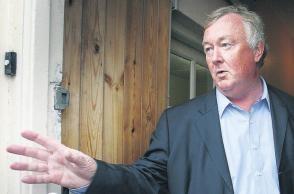O’Donoghue crisis masks reality that politics is now all about perks

The announced resignation of John O’Donoghue tonight (Tuesday, 6 October) was inevitable once first Sinn Fein, then Labour and, belatedly, Fine Gael pulled the plug on him. It raises questions about the survival of the government but, more critically, it underlines how politics here has become a tussle for the perks of office rather than anything substantive politically. There is no difference at all between Fianna Fail and Fine Gael, they are in contest not at all over policy or strategy for this society, merely about office. And about the perks of office – ministerial cars, the status of office, the attendant expenses and the deferences. Nothing about the central issue of these months: whether the fiscal crisis can be used as an opportunity to make this society more equal or make this society more unequal.
It is no surprise that since politics is about perks that there should be abuse of perks on a lavish scale or rather on an even more lavish scale. Perks on a lavish scale are fine, as James O’Reilly said last night in defending one of the most spectacular excesses of office – the use of ministerial cares on a 24/7 basis, driven by two full time Garda drivers – the cost of that perk per cabinet minister must be in the order of about €200,000 annually, taking into account the salary cost of the drivers.
They there is the casual use of the government jet, the use of helicopters to ferry ministers around at a whim. Plus all the paraphernalia of bloated ministerial offices, advisers, hangers-on. It is what our politics is about, hardly anything else.
Just today, Tom O’Connor, the assistant director of the Central Bank, called for cuts in welfare. This is from the institution that failed to monitor the collapse of the banking system and the consequences of the credit boom that fuelled the property boom. He said during the launch of the latest quarterly bulletin of the Central Bank, during the period 2001 to 2007 unemployment was never over 4.5 per cent “yet welfare payments increased by 100 per cent”. He went on to wax on about welfare; that child benefit quadrupled; and that there been “massive outlays on the welfare side”. He said: “We would all like welfare increase and so on but if this can’t be sustained, this is another matter”.
No challenged came today from the Dáil to these assertions by open of the key institutions. No one challenged it because no one thinks there is anything odd about the least advantaged in society being required to bear the burden of the fiscal crisis through welfare cuts and cuts in the services on which they depend: health and education.
John O’Donoghue is merely the most extravagant of the big spenders – as far as we know – and it is because of the embarrassment the public attention this causes that he is not to be sacrificed. But the system will roll on.
